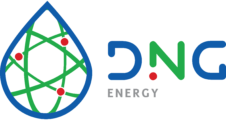Natural gas firm hunts for ‘cutting-edge’ ICT skills
By SAMUEL MUNGADZE,
IT Web, Senior news journalist
Amid SA’s growing ICT skills gap, natural gas distributor DNG Energy, which was recently licensed to start bunkering in Algoa Bay, is on the prowl for skilled ICT personnel, saying SA’s gas sector is poised for profound change.
In October, DNG received final authorisation from the Transnet National Ports Authority to begin the bunkering operations in the Port of Coega, in the Eastern Cape. The company says it will be ready to deliver liquefied natural gas (LNG) in SA as early as 2021, and ICT skills will play a significant role in the project.
In an interview with ITWeb, group CEO Aldworth Mbalati said the revolution of SA’s gas sector is largely a technological one, and his company will be creating jobs and contributing to skills development in the country.
He explains: “We will need the latest cutting-edge skills in ICT. We want people who are creative and able to apply new technologies. Our barge is a first of its kind, designed in close cooperation with naval architects. It has approval of the American Bureau of Shipping.
“It is, therefore, imperative that we tap into the best minds in ICT, who will keep its systems up to date while also ensuring a steady flow of new talent.”
The country is experiencing a chronic shortage of all types of ICT skills required to help local organisations succeed in the digital economy.
To this end, Mbalati says, DNG is taking special interest in supporting educational and training centres to help develop new required skills for the many facets of the LNG industry.
Explaining to ITWeb how technology will be used on the project, Mbalati says an Internet of things system that will be used in the barge is part of DNG’s proprietary smart LNG solution.
“We are ahead of many of our global peers. The cargo automation system will control the cargo processes on the barge.
“It is an integrated compliance system that will monitor LNG handling, audit and report on the quality of the product, the maintenance regime and keep tabs on logistics and operations. It is a just-in-time system that does inventory and stock management, sends a signal when delivery happens, gives key statistics on fuel efficiencies and monitors events in the vicinity of the barge for safety reasons.
“The system will use electronic sensors during the feeding of LNG into ISO [International Organisation for Standardisation] containers where it will monitor the liquid and balances the flow equally into the rest of the ship.
“It will also balance vapour pressure between the ISO containers and the floating storage unit during unloading. While the pneumatic shut off valves of both barge cargo system and ISO containers will be monitored, the system has a self-protection capacity to automatically shut down if there is no balance of pressure.”
According to Mbalati, this is a new sector that will create many new opportunities for South Africans, adding to the “more established sector of banking and insurance, a new merchant marine sector and their ancillary businesses, ship building and ship repair, pipe laying and construction industries, just to mention a few. This will lead to thousands of jobs in the gas market.”

